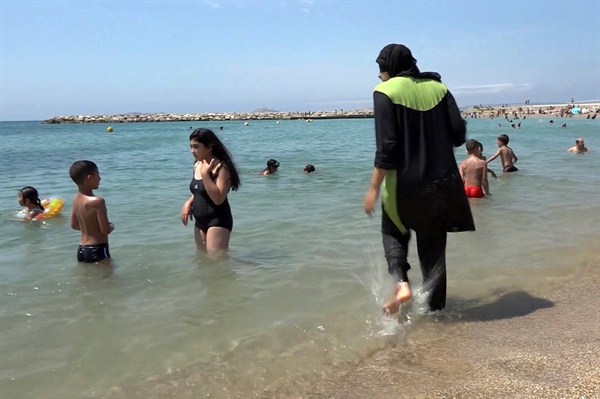PARIS—I left Paris two weeks ago for my annual summer vacation, when bans on burkinis—or modest beach attire for Muslim women—had begun springing up in various seaside cities and towns across France. Though the bans have now been ruled illegal by the country’s highest administrative court, the burkinis were clearly stand-ins for immigration, particularly Muslim immigration, to France and its impact on French culture and identity.
By coincidence, the complimentary copy of the International New York Times on my return flight home from Japan included an op-ed by Salvatore Settis on the ravages of mass tourism on Venice. The city has been so disfigured by the never-ending influx of tourists, most visibly in the daily arrival of massive cruise ships, that UNESCO recently warned it will be placed on the organization’s World Heritage in Danger list if it does not take steps to halt and reverse the damage by next February.
The contrast between the language used to discuss the challenges of mass immigration and mass tourism was striking. Stripped of any value judgment, both involve the transformative effects of mass mobility on destination cities and countries. But while concerns over the impact of tourism are considered to be reasonable, concerns over the impact of immigration tend to be dismissed as xenophobia or racism. It is yet another example of the dichotomy between rational and emotion-driven discourses that I discussed last week.

